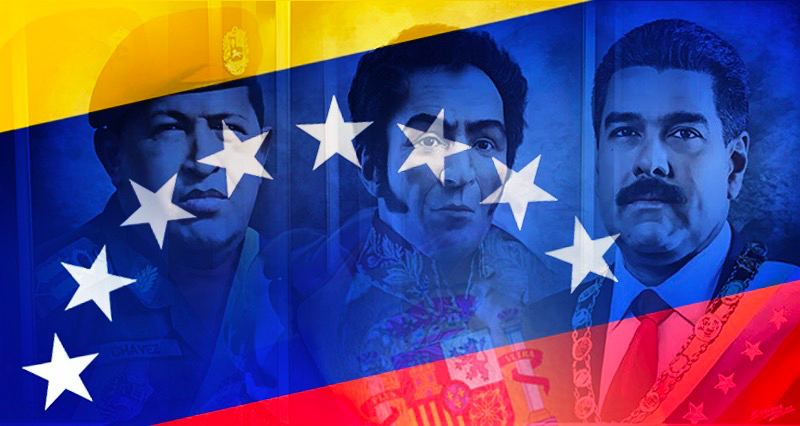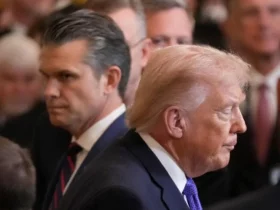Historic lies of the Spanish monarchy and contemporary ones of US Presidenty Obama.
Historic lies of the Spanish monarchy and contemporary ones of US Presidenty Obama.
“We will not make the great future we are looking for,
If we do not know the great past we had.”
Commandante Hugo Chávez
January 15, 2006
By Sergio Rodriguez Gelfenstein
A few weeks ago, I listened to a press conference and an interview with Jorge Rodríguez. In both news events, the president of the National Assembly of Venezuela explained the events experienced in the country after the flight of the former right-wing terrorist candidate in the presidential elections, Edmundo González Urrutia. In relation to this and in particular with regard to the actions of the Spanish State, I reflected on the fact that throughout history, the Bourbon family and its subordinates have used a similar pattern of behavior, resorting to lies and the exploitation of information to defend their dark interests.
For its part, the Venezuelan government, taking up the baton of the lessons of our history and first of all the lessons bequeathed by the Liberator and Father of the Nation in the management of the highest interests of the State, has assumed – since 1999 – the responsibility of rescuing the values and principles that shape our nationality. To do so, it has been imperative to understand history as continuity, not as a break.
At the beginning of 1818, while in Angostura, among his many tasks and responsibilities, Bolívar was concerned with revealing the maneuvers carried out by the Spanish to misinform about the course of the war, minimizing the successes of the Venezuelan patriots. With this objective, in a proclamation published in Angostura by the Civil Governor of Guayana, Juan Vicente Cardoso on February 6, 1818, it was stated that the enemy was making efforts to destroy the political system of the Republic and that to do so, it was using all the means at its disposal.
In view of this situation, the population was informed that they had to inform the government of any false news that was being spread about “events favorable to enemy weapons,” and that they had to report documents by known or anonymous authors that pursued the same objective, in addition to reporting spies circulating in the province, understanding that those who contravened these measures would be treated as adversaries of the republic.
In the same vein, the Liberator sent a letter to the governors and captains general of the Antilles on September 1, 1818, in order to refute the false information transmitted by the royalists. In particular, he wrote a letter to the captain general of Barbados in order to refute a report that the Spanish general Pablo Morillo had sent to the British official in which he reported alleged victories of his forces.
Bolívar, using harsh language to refer to the lack of ethics of the Spanish when they dared to falsify numbers and data on the events of the war and the casualties in the battles, but maintaining a tone respectful of the protocol rules, makes known with figures the true results of the war actions that were taking place, assuring that the Venezuelan army had inflicted crushing defeats on the Spanish in several battles among which Calabozo, El Sombrero, San Fernando, La Puerta, Ortiz and Cojedes stand out, in which the Spanish lost five thousand men between dead, wounded and prisoners, including Colonels López, González, Villa, Navas, Aragón and Quero and other leaders among the first and Morillo himself and his second Latorre among the wounded. He exposes in detail the contradictions of the figures reported by Morillo, which was a clear expression of false news about the course of the war.
He concludes by saying that, given the course of events, it would not be long before the moment when Morillo would no longer be able to date from Venezuela “his lying dispatches.” He ends by telling the Captain General that, understanding that he had annoyed his attention with these details, he had believed it necessary to inform him of the data he had provided him in order not to be misled by false information from the enemy, considering that if the data provided by Morillo were true, he would have already occupied all the territory of Venezuela that he had actually lost in the last campaign, reducing the Spanish army to the saddest defensive in mountainous areas and in Caracas.
Two hundred and six years later, the Spanish State, in particular its government, following its tradition, continues to lie. In the context of recent events, first, its foreign minister “reported” that there had been no negotiations with the Venezuelan government to send a military plane to look for González Urrutia. Anyone could wonder if the aircraft entered Venezuelan territory surreptitiously and in a clandestine operation took the former candidate. This was not the case; the entry of the plane, it’s refueling in the hangars of the Venezuelan government and the arrival of the passenger to make his trip were negotiated. Let us say it bluntly: the Spanish foreign minister is a habitual and obsessive liar. Among other things, this is why Spain’s foreign policy has no credibility.
On the other hand, the former candidate “reported” that he was coerced into signing the letter in which he requested his safe conduct to leave the country. A letter in which, in addition to recognizing Venezuelan institutions and President Nicolás Maduro as the country’s sole head of state, was delivered to Jorge Rodríguez inside the Spanish embassy where the Venezuelan authorities entered with authorization from the representative of the monarchy in the country. In this case, it would be worth asking: was there collusion between the government of the kingdom and that of Venezuela to coerce González in Spanish territory? This time, the defeated candidate, already in the territory of the kingdom and protected by the Bourbon monarchy, falsified the information. They themselves, through the voice of their foreign minister, denied it.
To assume that the dog’s subordination to Washington grants the possibility of lying without shame and that people are stupid and will believe it, is nothing more than an expression of the imperial arrogance of a discredited country that for more than 200 years has used falsehood, comedy and dissimulation as a policy.
Spaniards can be told anything, no matter how true the “report” is: El País and RTVE are responsible for transforming any opinion into an instrument of deception. But we learned from the imprint of Bolívar and the pedagogy of Chávez that our truth is more powerful than any weapon that Bourbon colonialism tries to use. That was the case in the 19th century and that is the case now, in the 21st century, in this recovered homeland.
In Venezuela, there is a heritage and a patrimony that had been lost and neglected in the neocolonial past of the country’s history. But now it is part of our heritage. We owe it to Commander Hugo Chávez who recovered it for all Venezuelans.
At the 5th Summit of the Americas, held in Trinidad and Tobago in April 2009, US President Barack Obama proposed to Latin Americans that we forget history and look forward. He said that we could not “allow ourselves to be prisoners of past disagreements” and added that he had not come to the event to “discuss the past but to think about the future.”
To help him understand that past and why we Latin Americans cling to it and do not forget it, President Chavez gave his American counterpart a copy of the extraordinary work of the Uruguayan writer Eduardo Galeano, “The Open Veins of Latin America”. No one knows if Obama read Galeano’s book, but wanting us to “forget the past” and “think about the future,” six years later, in 2015, he decreed that Venezuela was an “unusual and extraordinary threat to the security of the United States.” Thank goodness we did not forget Bolivar and our history: “The United States seems destined by providence to plague America with misery, in the name of freedom.” Thus, clinging to our history, we can resist, and we can win.
That same year, 2015, at the Summit of the Americas in Panama, Obama reiterated his proposal made six years earlier: “Let us forget the past and build the future together.” The continuity and perseverance in this matter is striking. It seems evident that there is something in our history that the presidents of the United States reject and fear.

















Leave a Reply